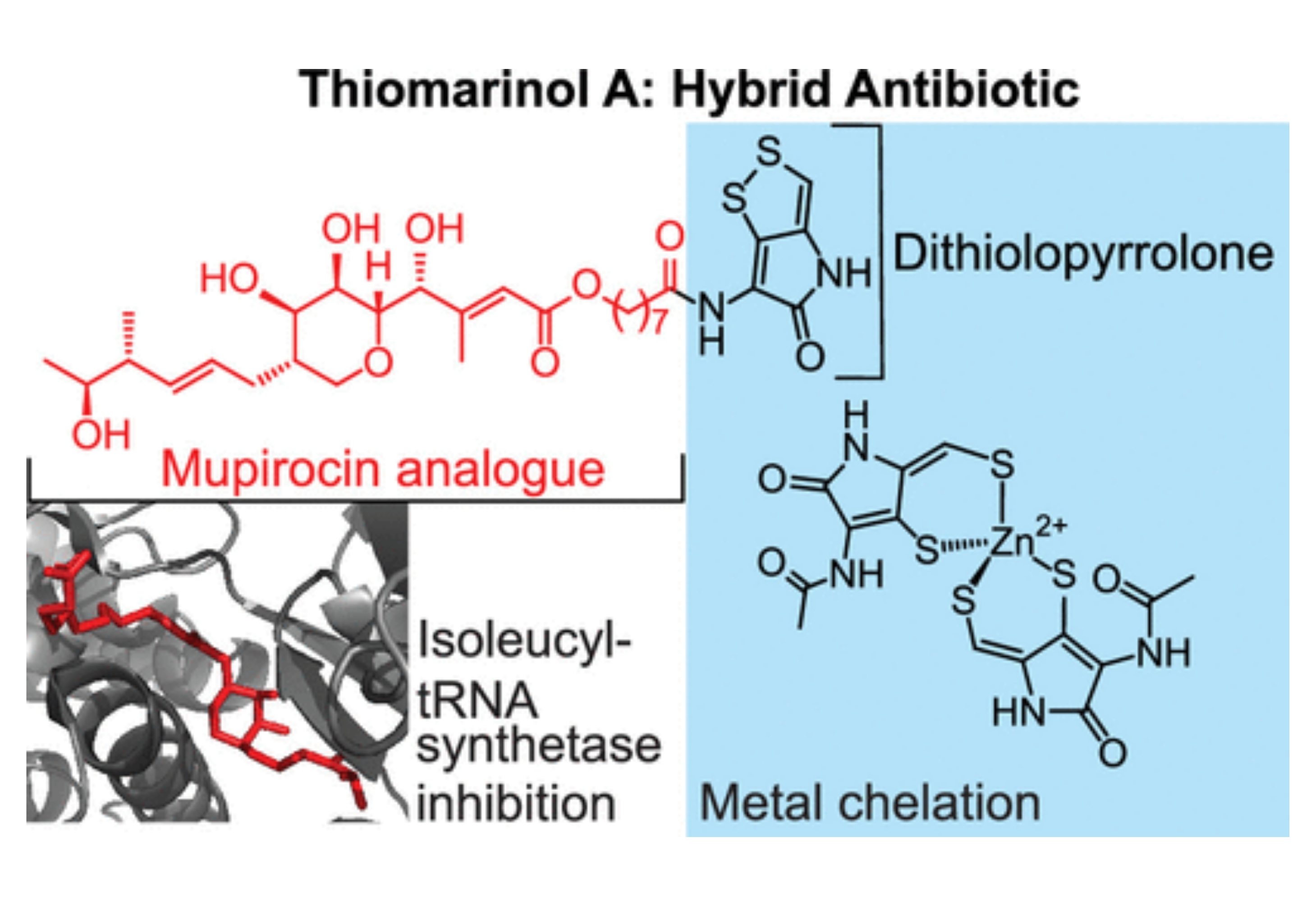Inhibition of Isoleucyl-tRNA Synthetase by the Hybrid Antibiotic Thiomarinol
Abstract
Hybrid antibiotics are an emerging antimicrobial strategy to overcome antibiotic resistance. The natural product thiomarinol A is a hybrid of two antibiotics: holothin, a dithiolopyrrolone (DTP), and marinolic acid, a close analogue of the drug mupirocin that is used to treat methicillin-resistant Staphylococcus aureus (MRSA). DTPs disrupt metal homeostasis by chelating metal ions in cells, whereas mupirocin targets the essential enzyme isoleucyl-tRNA synthetase (IleRS). Thiomarinol A is over 100-fold more potent than mupirocin against mupirocin-sensitive MRSA; however, its mode of action has been unknown. We show that thiomarinol A targets IleRS. A knockdown of the IleRS-encoding gene, ileS, exhibited sensitivity to a synthetic analogue of thiomarinol A in a chemical genomics screen. Thiomarinol A inhibits MRSA IleRS with a picomolar Ki and binds to IleRS with low femtomolar affinity, 1600 times more tightly than mupirocin. We find that thiomarinol A remains effective against high-level mupirocin-resistant MRSA and provide evidence to support a dual mode of action for thiomarinol A that may include both IleRS inhibition and metal chelation. We demonstrate that MRSA develops resistance to thiomarinol A to a substantially lesser degree than mupirocin and the potent activity of thiomarinol A requires hybridity between DTP and mupirocin. Our findings identify a mode of action of a natural hybrid antibiotic and demonstrate the potential of hybrid antibiotics to combat antibiotic resistance.
Citation
Inhibition of Isoleucyl-tRNA Synthetase by the Hybrid Antibiotic Thiomarinol
Rachel A. Johnson, Andrew N. Chan, Ryan D. Ward, Caylie A. McGlade, Breanne M. Hatfield, Jason M. Peters, and Bo Li
Journal of the American Chemical Society 2021 143 (31), 12003-12013
DOI: 10.1021/jacs.1c02622


